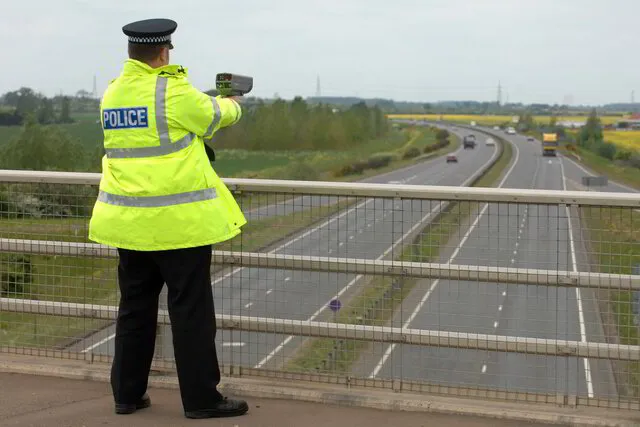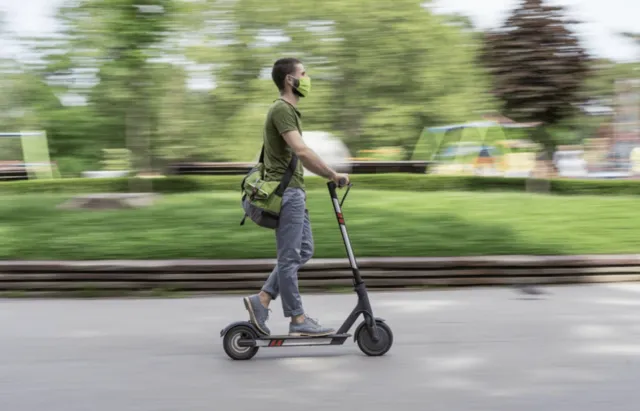From diabetes to depression, many different medical conditions could have an impact on your ability to drive. Some conditions are more obvious than others. Nevertheless, as a driver, it is your responsibility to make sure you inform the DVLA of any condition you have that could impact your driving ability.
There are clear rules and regulations in place regarding the medical conditions and disabilities that need to be reported to the DVLA. Below, we will explain everything you need to know so that you can make sure that you report your condition if required.
Content Overview
Why is it important to declare medical conditions to the DVLA?
Which medical conditions need to be declared to the DVLA?
How to report a medical condition to the DVLA
Adapting your vehicle on the order of the DVLA
What are the risks of not reporting medical conditions to DVLA?
Reapplying for a driving licence following a medical condition
Why is it important to declare medical conditions to the DVLA?
You must tell the DVLA if you have a medical condition that could impact your ability to drive. This is for your safety and the safety of everyone else on the road.
There are 112 disabilities, conditions, and illnesses that need to be reported to the DVLA, otherwise known as the Driver and Vehicle Licensing Agency. Issues range from vertigo to eye issues. If you do not do this, you could be fined up to £1,000.
If you are involved in an accident, and your undeclared illness is to blame for this, you could end up being prosecuted.
Which medical conditions need to be declared to the DVLA?
You will need to tell the DVLA if you have a driving licence and one of the following is applicable:
- A disability or condition has got worse since you got your licence
- You have developed a notifiable disability or medical condition
Some of the notifiable conditions that could have an impact on your ability to drive include the likes of glaucoma, stroke, epilepsy, sleep apnoea, heart conditions such as pacemakers and atrial fibrillation, syncope (fainting), and diabetes or taking insulin.
You can use an online service to determine whether or not you need to report your condition. Some conditions that need to be reported are obvious, for example, dementia and head injuries. However, some health issues are not as evident yet come with unexpected symptoms, which could impact your ability to drive.
If you are not sure whether your illness has an impact on your ability to drive safely, it is always better to check with your doctor. Nevertheless, the duty to inform the DVLA does lie on your shoulders, so do keep this in mind.
How to report a medical condition to the DVLA
Once you have used the online service to determine whether or not you must report your condition, you will be informed of the steps you need to take to report this. You can print off the form and send it in paper form or submit this online.
Once you answer a few questions and search for the medical condition you have, you will then be asked a few questions specific to your condition.
For example, if you have glaucoma, you will be asked whether it’s in one or both eyes. You then can add additional medical conditions if you are suffering from more than one.
In the case of glaucoma specifically, you will be asked several questions specific to your condition. Depending on this, you could be sent for a field of vision test to determine if you meet the central field and peripheral field standards needed to drive safely.
Adapting your vehicle on the order of the DVLA
After reviewing your condition, the DVLA may allow you to keep your license so long as you make some changes to your vehicle. If this is the case, you need to get an independent assessment of your adaptation needs via the disabled driving centre near you.
What are the risks of not reporting medical conditions to DVLA?
Informing the DVLA about any sort of medical condition that could have an impact on your driving is not optional. Failure to do this could result in you receiving a fine of up to £1,000.
Reapplying for a driving licence following a medical condition
DVLA will send you a letter if your application for a driving license has been declined or your licence has been taken away. The letter will inform you of the time you must wait before you can get a new licence. You are then able to make an application for a new licence eight weeks before the conclusion of this time frame.
To do this, you will need to fill in a D1 application form, as well as a form for the medical condition you have. Both of these need to be sent to the DVLA. Simply choose your medical condition so you can locate the correct form. You also need to order a D1 pack, which will contain everything that is required to make your application.
Before you reapply for your licence, check with your doctor to ensure you meet the medical standards that are in place. You may be required to submit evidence that you are fit to drive.
Get free legal consultation
I hope that this has helped you understand whether or not reporting your condition is required by DVLA. Failure to report your condition could result in a fine of up to £1,000. If you are charged with this or any motoring offence, call me at 0151 601 3743 to get a free initial consultation.



